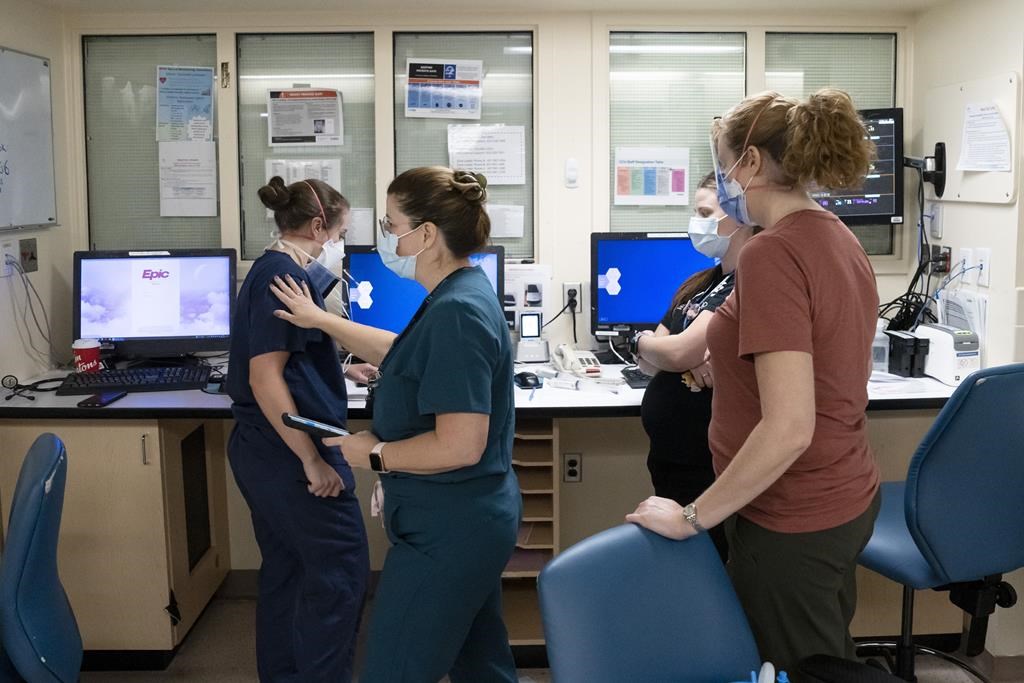Why are children across Canada getting so sick this year?

Posted December 13, 2022 2:38 pm.
Last Updated December 13, 2022 3:14 pm.
As a record number of Canadian children are hospitalized with common respiratory viruses, experts from several universities are conveying why they believe it’s happening.
For months, pediatric hospitals have been flooded with young kids becoming critically ill from common viruses, like Respiratory Syncytial Virus (RSV) and Influenza.
At one point in November, half of the children in Ontario ICUs were testing positive for RSV, while the other half had the flu, according to the province’s top doctor.
All four experts CityNews spoke with believe an immunity gap plays a significant role in the number of children hospitalized.
“For the last couple of years, kids and everyone has been socially distanced wearing masks, so, therefore, have not been exposed to many viruses,” explained Earl Rubin, the division director for pediatric infectious diseases at Montreal Children’s Hospital.
“They were locked down, distanced, masked, and they weren’t getting exposed. So you have a greater proportion of people who are not immune to that infection, and as it spreads, more people would be coming infected.”
“We are just seeing a surge that came earlier with greater numbers, and within those greater numbers, you are going to see a greater subset of kids getting really sick,” Rubin added.
“We’ve always had very sick kids with RSV. What is a little bit different is that it wasn’t as commonplace that the older infants and toddlers were getting so sick.”
According to Dawn Bowdish, the Canadian research chair for aging and immunity, other challenges are also at play.
“All of these seasons are overlapping; RSV in March and the flu generally later, but with everything happening simultaneously, children are more likely to get co-infections, so two things at the same time. Those have always been harder to treat,” explained Bowdish.
Another explored theory is the impact COVID-19 infections could have on children’s immune systems, possibly causing harm and making them more susceptible to other viruses, according to Samira Jeimy, who specializes in immunology at Western University.
“There is a growing body of evidence in adults related to secondary immune deficiencies related to COVID infections, so that’s one hypothesis,” Jeimy explained.
But data is scarce regarding kids, with most of the COVID-19 research focusing on adults.
Matthew Miller, a pediatric infectious diseases specialist at McMaster University, tells CityNews what’s happening warrants a much deeper investigation.
“I think that is the key question that we need to know in exquisite detail is differentiating between a higher number of cases we would reasonably expect,” said Miller.
“As a result of those viruses disappearing during the first couple years of the pandemic and as a result of those public health measures or whether or not those cases were more severe than we would normally expect, which would suggest something altogether different is going on.”
It’s also harder to get access to the data with the lack of testing, the experts noted.
“The perfect way to do this would be to look and see our children who have had COVID infections recently or if they’re the ones who are coming back to the hospital,” said Bowdish. “But the combination of not having any testing and just not having the capacity to do these database studies means we’re left guessing.”
Bowdish said it’s essential to get children vaccinated every year against influenza.
“Your experience has little impact on your future experience, especially in children because they’re so different,” explained Bowdish.
“Less than one of four kids has been vaccinated for this year’s influenza. And if we could vaccinate all those children, not only would we see a decrease in these dangerous co-infections, hospitalizations for influenza, but many of these post viral, bacterial infections that can occur will also be reduced.”
And Jeimy says not enough is known to believe nothing more is at play here, and next year cold and flu season will be back to normal.
“I don’t think it’s rational to hang our hat on one theory … I hope I am wrong, but what if it’s not over?” asked Jeimy. “I think the probable answer is that it’s multi-factorial.”
As for getting the hospitals through the next few months, Rubin said RSV and the flu have always had a seasonality.
“There is that light at the end of the tunnel that the season should end at some point; we just don’t know when for RSV.”








